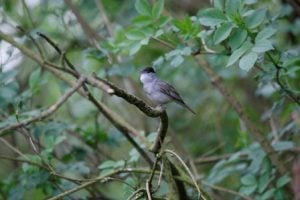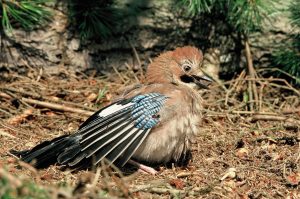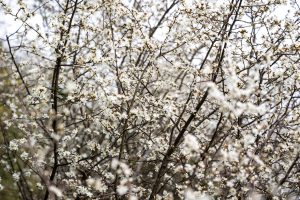Climate change and food availability improves Blackcap population
There’s been a great piece in the news this week – which even made the BBC news homepage – about how Blackcaps have shifted their European migration route to exploit the food we put out for birds in our gardens. How good is that?!
The findings have come from a BTO (British Trust for Ornithology) report which covered data from a 12 year period, and essentially showed that many Blackcaps, which breed in central Europe, had progressively adapted their behaviour to spend winters in Britain rather than head further south to the Mediterranean. Two reasons were cited for this: climate change and the availability of food put out in gardens.
Lead researcher for the project, Dr Kate Plummer, commented that: "This is the first time that we've shown that feeding birds actually influences the distribution of a bird species across a whole country." Commenting on the fact that the increased sightings of Blackcaps were in gardens where food was put out for birds, Dr Plummer went on to say: "Where there was a reliable supply of food, Blackcaps were more likely to be seen."
This is of course great news and something at Vine House Farm we’ve long suspected. This is driven by the number of our customers that have increasingly reported regular sightings of this very attractive little warbler in their gardens during autumn, winter and very early spring.
So what foods can you put out to attract Blackcaps to your garden? Well in our experience and from what our customers tell us, suet pellets and suet blocks are a real favourite. Blackcaps will often feed from ground feeders and tables, but will also cling onto hanging feeders and in particular suet block cages. They also like sunflower hearts and chopped peanuts, and if you take a look at our video about feeding garden birds you’ll see a lovely female Blackcap (at about 4.56 in the video) on a ground feeding tray eating a husk-free mix which contains both these foods.
Please do tell us about Blackcaps in your garden and the foods which are attracting them.
The findings have come from a BTO (British Trust for Ornithology) report which covered data from a 12 year period, and essentially showed that many Blackcaps, which breed in central Europe, had progressively adapted their behaviour to spend winters in Britain rather than head further south to the Mediterranean. Two reasons were cited for this: climate change and the availability of food put out in gardens.
Lead researcher for the project, Dr Kate Plummer, commented that: "This is the first time that we've shown that feeding birds actually influences the distribution of a bird species across a whole country." Commenting on the fact that the increased sightings of Blackcaps were in gardens where food was put out for birds, Dr Plummer went on to say: "Where there was a reliable supply of food, Blackcaps were more likely to be seen."
This is of course great news and something at Vine House Farm we’ve long suspected. This is driven by the number of our customers that have increasingly reported regular sightings of this very attractive little warbler in their gardens during autumn, winter and very early spring.
So what foods can you put out to attract Blackcaps to your garden? Well in our experience and from what our customers tell us, suet pellets and suet blocks are a real favourite. Blackcaps will often feed from ground feeders and tables, but will also cling onto hanging feeders and in particular suet block cages. They also like sunflower hearts and chopped peanuts, and if you take a look at our video about feeding garden birds you’ll see a lovely female Blackcap (at about 4.56 in the video) on a ground feeding tray eating a husk-free mix which contains both these foods.
Please do tell us about Blackcaps in your garden and the foods which are attracting them.



